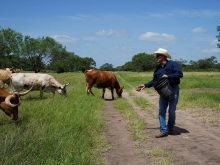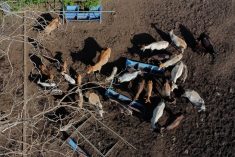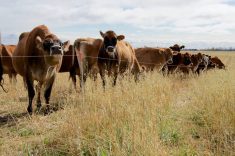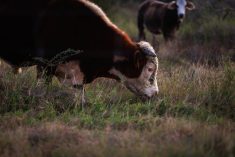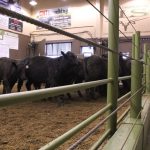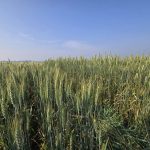CALGARY – Feeding steers recycled chicken manure has ruffled feathers in British Columbia’s Fraser Valley.
An Environment Canada demonstration project in the region where 32 Holstein steers are receiving rations that include pelleted chicken manure has been criticized by dairy and beef industries.
Environment Canada is investigating ways to rid the area of chicken manure, which is linked to soil and water pollution in the densely populated region.
But the project couldn’t have come at a worse time for a cattle industry already under the microscope in the wake of the mad cow disease scare in Britain and Europe, according to Lorne Leach of the B.C. Cattlemen’s Association.
Read Also
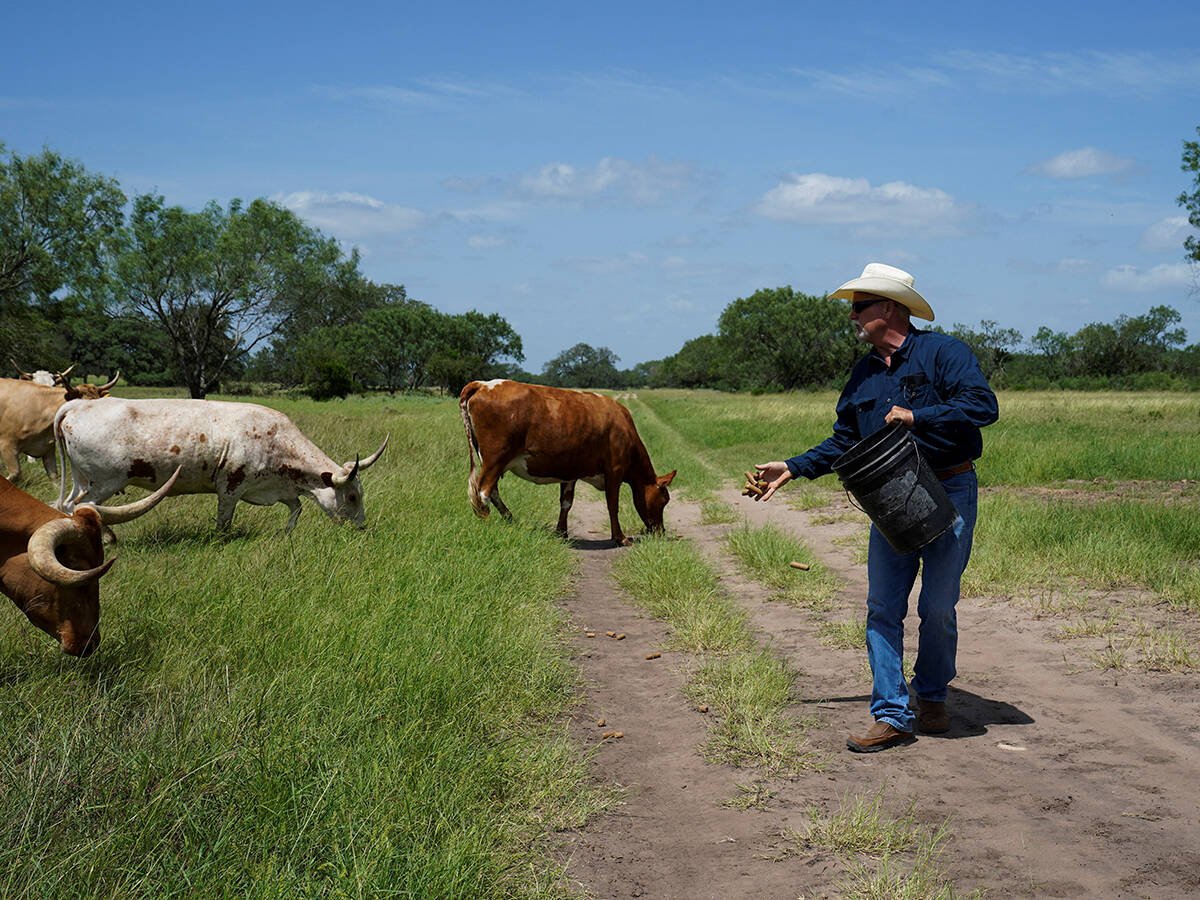
U.S. cattle producers fear return of screwworm
Parasitic screwworm flies are pushing northward from Central America again after being officially eradicated from the United States in 1966, threatening $1.8 billion in damage to Texas’ economy alone.
“Our industry can’t afford this when we’re working so hard to guarantee the production of a safe, quality product. We can’t see anything happen to jeopardize that,” said Leach.
The British beef industry has been devastated by reports that bovine spongiform encephalopathy, or mad cow disease, may be passed to humans in the form of a deadly brain disease, if people eat BSE-infected beef. It’s believed beef first contracted BSE from eating sheep remains infected with scrapie.
As well, questions about the transmission of the E. coli bacteria, which is linked to hamburger disease, were also raised.
The Canadian Cattlemen’s Association recently passed a resolution discouraging the practice of feeding recycled manure to livestock. Most people don’t include it in their rations now, said Cochrane, Alta. rancher Jim Turner.
“We like to say our beef is pure and clean and if you are feeding them manure that perception is changed.”
When the story was first released by Environment Canada, Leach said the B.C. association received several complaints from producers and consumers who want no part of beef or milk from animals fed manure.
The B.C. association and the province’s dairy industry have written to the environment department saying they understand the disposal problem of poultry manure in the Fraser Valley. But they draw the line at feeding it to livestock.
“We told them we must insist that it not be done at the expense of the cattle industry,” said Leach.
From a nutritional standpoint, recycled manure is useful as feed because it is a good source of dietary urea.
Manure rations tested
The feeding project is part of the Fraser River Action Plan. Steers in the test are split into two groups with 16 receiving a sterilized dehydrated pellet of chicken manure in their rations. The recycled product makes up four to five percent of their total diet. The remaining cattle were placed in a control group and fed no manure.
When the steers reach processing weight they will be slaughtered and a taste-testing panel in Alberta will sample the meat.
According to a CCA spokesperson, feeding manure to farm animals has gone on for about 30 years in the United States. No evidence of disease problems have been found.
Chicken manure is listed as a feed ingredient in the Canada Feed Regulations. The regulations say dehydrated chicken manure can be used in beef rations but can’t exceed 10 percent of the complete feed. It can also be fed to broiler chickens, chickens slaughtered at 8-12 weeks old, in an amount not more than 20 percent of the total feed ration. It must be discontinued 15 days prior to slaughter.



